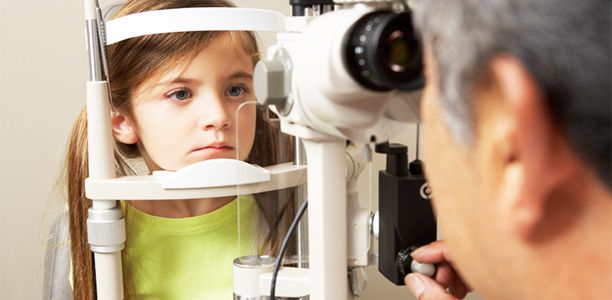With up to 40% of autistic children suffering from ophthalmic problems (Ikeda et al, 2012), and many unable to tell anyone, Australia’s first dedicated optometry service for children and adults on the autism spectrum is set to dramatically improve the quality of life of some of our most vulnerable citizens.
The new centre, which will provide its service for free under Medicare and is led by Dr Paul Constable at Flinders University’s Flinders Vision Autism Centre, is being launched today (Thursday 31 March, 2016) in time for World Autism Awareness Day (Saturday, 2 April).
“Poor vision can be very hard to spot in people with Autism Spectrum Disorder because the symptoms are often attributed to autistic behaviour,” said Centre Director and Flinders University optometrist Dr Constable.
“These include an inability to track things with their eyes, over intent focusing, avoiding eye-contact, or missing cues from their peripheral vision.
“An estimated one in 100 people has ASD, which means it affects almost 230,000 Australians, so this is a major problem with significant negative consequences for children and adults who may already be at a disadvantage because of their ASD.
“It’s difficult enough for people with ASD to make sense of the world and develop the skills they need to communicate without the added complication of not being able to see properly – or even to be able tell anyone that you can’t.
“Owing to poor communication it is hard to know what they can and cannot see, and parents/guardians naturally work hard on language and communication, so eye-sight can be overlooked initially.”
Dr Constable, whose son is on the autism spectrum, will initially run the clinic once a week from the Flinders Vision Optometry Clinics, where he will use a tailored consultation aimed to make the experience as positive and anxiety-free as possible for anyone on the autism spectrum.
“Our waiting room, staff and consulting rooms are autism-friendly, with toys that are very tactile and with order and visual cues, so that children have their own space and feel a sense of belonging,” he said.
“Prior to their appointment, we also offer parents or guardians the use of a ‘visual timetable’ and a virtual 3-D video of the practice and the eye-test routine, so they can familiarise themselves with what will happen before they arrive.
“These steps are intended to further reduce anxiety and help to set-up the routine of ‘what will happen in the sight-test’ beforehand.”
Flinders optometry students will also use the Autism Centre as a unique teaching resource, allowing students to view consultations from outside the room via video and become involved in research on visual function in autism.
Appointments can be made for Thursdays at the Flinders Vision Autism Centre on (08) 7221 8700 or online at www.flindersvision.com.au Alternative days are possible as required.
(Source: Flinders University)










